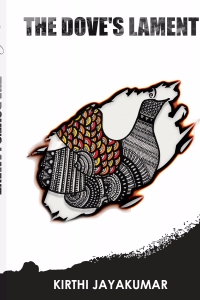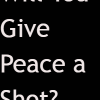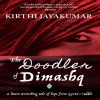
The Dove's Lament is a collection of 12 hard hitting stories from different conflict zones of the world and 12 essays about the history of those conflicts.
The first story is given here,
Genocide
Nyarubuye, Rwanda, April 1994
When I was born, I never knew that I would live to see war all the time. I never knew that war could, and would, define me, or dictate the way my life would be. I never knew that war would be the demon that would single-handedly make a whole community of people but a mere memory. War would relegate humanity into the annals of history of the nation as mere nameless faces couched behind a number that would depict a death toll. They would remain silver filaments in the labyrinthine depths of the survivor's mind. I never knew that war would leave a grotesque tattoo etched in indelible ink on my mind, like a scar on one's skin.
‘Keep this inside the sack I gave you.’ I told my son, giving him a lump of bread wrapped in leaves.
‘Where are we going, Mama?’ he asked.
My heart throbbed at the answer that is forming itself at the base of my throat. It was a lie, I know. ‘A holiday. But a secret one.’ I heard myself say.
A lie. It seeped between my teeth and sinks into the gaps. It settled momentarily before my eyes, dusting cobwebs of fear in his mind with the promise of a fantasy to escape from reality. The possibility of the fantasy actually being a reality seemed to be a distant dream. A far away and broken dream of peace, whittled down to nought by the ugly prick of reality. Nevertheless, just as I looked down in shame, I saw my son at my knees, his five-year-old mind content with the idea of a holiday, his five-year-old ego boosted with the clandestine element to his holiday- an infusion he can use to his advantage in claiming primacy over his friends while narrating it later. And, just as instantly, the lie fit. Even if just for now.
I was still not sure what we were preparing for, or where we were going. For days together, Mama and Data had been telling me of tales of massacres in their village. It was obvious that soon it would be our turn.
I looked down at Habimana, my son, my angel. God exists, his name told me. Every time I call out to him, I reminded myself of just that. His name is an amulet, a safeguard against impending doom. Habimana, Habimana.
A hundred thoughts coursed my mind. Was I a bad mother for shielding my son from the brutish realities? How could I tell him that it was now a crime to be a Tutsi? A crime to be Tutsi, for those who think we are vermin. How could I tell him that for no fault of ours, we, Tutsis, were being punished? To the Hutu, Tutsis were the ones who killed Juvenal Habyarimana. How could I tell him that, as the Hutus have decided, we should be exterminated as “the final solution”, while the world simply sat silent?
I pottered about in the kitchen, my hands moving on their own, and my mind floated away with the rigid torpor that fear brings with it. It was days since I saw my husband. I had no idea if he was alive. He left the house one morning, embarking on his daily expedition to fetch us water. That was the last time we saw him. Some in the village told me he was killed. Some told me that he was kidnapped – but no one knew anything for sure, or who was responsible for his disappearance, at all. I longed to know if he was fine- I longed to breathe the air he breathed, to hold his hand in prayer, to just see his face the first thing in the morning, every day.
There was a knock on the door and Habimana rushed to it before I had a chance to think. I heard him open the door, and the voice of Bijoux, our neighbour, sounded loud and clear as she said, ‘Habimana, tell your mama that we must make a dash for it. The market place has been attacked, and now they are coming towards our houses!’ He shut the door and came right back to me, his shock writ large on his face after the warning he had just heard. There is an element of surprise to crisis. It never comes to you with a forewarning, it never tells you it is going to pay a visit. It creeps up from behind and knocks you in the head, and when you turn around, it knocks you on your knees. The unholy sacrifice at the altar of hatred and contemptuous perceptions had begun.
I looked at his wide eyes. His innocent features were marred by fear of the unknown. I sigh. ‘It’s time to leave, Habimana.’ I said.
He nodded, a seedy little bug from the air wrought with fear having captured his power of speech or comprehension. I steered him out of the door silently, carrying our memories along but bidding the house goodbye. I felt no pain. My mind was numb. I didn’t know where I was going, or what my future held in it, and I was unsure if either Habimana or I would see a tomorrow. I felt I had to go to the church, seek His blessings, and then move on. We walked onwards; I was firmly holding Habimana’s little hand in mine, and his little feet moved double-time to keep up with my pace.
We managed to reach the church without encountering any crisis. As we stepped into the church, the sheer number of familiar faces shocked me. This was really happening. The vagaries of the unknown had trounced us, as fear hung loosely, filling the interstices between each person inside the church. We were united in every unspoken word, every unfulfilled ambition, every abandoned home, every uncertain future, and by the resounding slap of a bleak reality. We prayed on our knees, pleading with the Lord, clutching at straws of faith in the hope of reaching him. Change our destiny, we begged. Let us live, we pleaded. Stop this carnage, we demanded. Give us hope… something… anything…
I didn’t feel my eyes tearing up as I prayed. But I knew that tears filled my eyes. I didn’t feel the relentless stream as it welled up and dropped, as prayer after prayer repeated itself on my lips. But I knew I was crying. I didn’t feel my hands clench one another in prayer, until my knuckles were white and my nails had dug into the back of my palms. But I knew that I was clutching at hope. I didn’t feel my knees hurting from the pressure of my weight; I didn’t feel the hard stony surface that had dug bruises into my shins. But I knew that I was weighed down by the reality. What I did feel was when Habimana tugged at my sleeve.
‘Mama. Look!’
I was startled out of my stupor. I noticed through eyes brimming with tears, the pallid faces around me. I saw Habimana’s little hand pointing towards the doorway.
Guns. Men. Knives. Clubs. Many soldiers. Death. Screams. Scrambling feet. Children crying.
‘Give us all your money and we will spare you. Don’t have any then we will make you pay, somehow.’ Laughter. Loud. Shrill. Icy.
Ruffled men and women scrambled with whatever they had in their pockets. Little coins tinkled, notes shuffled. Did I have money with me? I could not recall having taken any in my hurry to flee. I stayed rooted to the spot. Fear had rendered me inert. A line, quick handovers of money, shuffling feet. Then a gunshot sounded. The last man to pay had been shot in the stomach. Blood spattered around him.
I saw the Mayor standing amongst those gun-toting men. Sylvester Gacumbitsi. Wasn’t it his responsibility to protect his people, I wondered. I saw Joseph Gahiji amongst them, knife in tow. Could it be really him, the man I knew? Could it be the very benevolent gentleman who brought his granddaughter to the same school as Habimana every day until the war broke out? The strange irony of the situation did not escape my notice. Gahiji, he was called. It meant “Hunter”. No wonder.
I watched as cowering men were butchered. I watched as helpless women were brutally beaten. I watched as heavy stones came down on the heads of many others. I watched as brutes grabbed little children and smashed them against the wall. I watched as shrieking infants were splattered with the blood of their mothers. I watched as grenades arced in the air and crashed down, blasting people in its path to smithereens. I watched as a machete glinted in the light, capturing my attention, coming down and stabbing me on my left shoulder. I felt nothing, I watched as the blood gushed out in torrents. I listened, as the screams grew louder and louder. I watched as Habimana’s eyes grew wider and wider. I watched and watched and watched.
All of a sudden, I keeled over, my gut wrenching with pain, my bleeding arm still clinging on to Habimana. I couldn’t let them touch him. He was my blood, he was my world. I tugged Habimana as I bent over. He was smart. He lay still. We were corpses. We would be corpses if we didn’t play corpses. I closed my eyes for a few minutes, as the chaos shrouded my surroundings. When I opened mine, Habimana had done just as I had. My blood had soaked through his shirt; he looked like he was killed. Well done, I thought to myself.
And then, it all went black.
I am not sure when I woke up. But I did. The stench was awful. It told tales of death, blood and an unforgettable massacre. I didn’t know if my eyes were open or shut, it was black everywhere. The darkness began and ended somewhere, but the circle enveloped me far too deep to know where. I tried lifting my head and pulling my body in the attempt of getting up. A sudden shock of pain shot up my left shoulder. My head hurt, my eyes burned. There was something heavy on my legs. My eyes slowly adjusted to the darkness around me. Where am I? I asked myself. And then, the jolt in my heart set things back in motion.
The Massacre.
Habimana?
Pain coursed through my sinews with every move I made as I sat up fully. Habimana, I whispered, reaching out for the heavy mass on my legs. Habimana? I shook the form. Nothing. I ran my hands up and down the form. Dead. It was a mass, sticky, dead. My hands were full of blood.
Habimana? I called out cautiously, afraid that I was going to draw unwanted attention upon myself. No answer. Just an eerie silence.
Suddenly, a blood-curdling scream ripped through the belly of the darkness. It was a while before I realized that it was my own scream that I had heard. The dissociation from my body was astounding: I couldn’t comprehend that all this had happened to me, in my presence, to all the people in this village that I knew. . My mind raced through a sea of unwanted thoughts. Where was Habimana? Was he alive at all? Was he...? I couldn’t bring myself to think of the word. Just the thought was too traumatic to bear. Habimana, where are you? My mind asked, over and over and over. Scenes flashed before my eyes. Murder, plunder, pillage. The haunting images of people falling dead, as the flames of life were extinguished in a puff of smoke, danced before my eyes. I wanted to run. I wanted to shout. I wanted the pain coursing through my veins to end in a deafening blast. I wanted the dead back. The silence around was too loud for me. I couldn’t cope. Slowly, my dead-still surroundings started stirring and I became aware of the voices around me... some begging for mercy... some calling out to their loved ones ... and what seemed perhaps, newly orphaned children crying piteously. I heard Death’s cape swish and flap in the sick winds that Murder blew. Images of corpses with a permanent scream locked into their faces were etched in my memory forever.
Habimana, Habimana, are you one of those faces? No! It cannot be.
Pain shot up my left arm.
I fell back in a stupor.
Habimana... I know you are not dead... I will find you, wherever you are...
Blood dripped somewhere.
Blackness.
About the Author







Comments